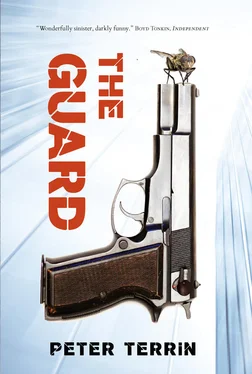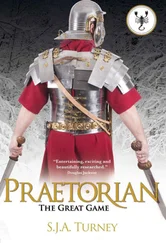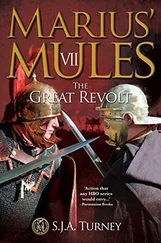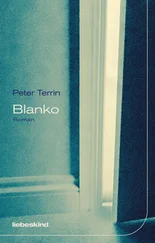I lean my head back on the entrance gate.
The New Year starts with its slowest minutes.
Shortly after two Harry says that the front, if ever there was such a thing, must be quite far from the city by now. Anyone who stayed and survived would be in hiding.
After another ten minutes of despondent silence, Harry says that we can assume that the situation outside has changed. That the situation must have stabilized. That the unrest, the menace, may have passed… I feel his gaze on my face. Do I understand what he’s getting at?
I understand what he’s getting at.
I ask, “You think so?”
He nods. “I think so. Yes.”
I want to make him say it. He brought it up himself. I want us both to hear it from his mouth. I say, “We are talking about the same thing, aren’t we?”
“The guard,” Harry says.
“The guard.”
“We have to take it into account, Michel. The plan for a third guard might have been dropped a while ago… The organization is an efficient company, they’d never station a superfluous guard somewhere, even if they’ve announced it. And they don’t make those kind of announcements without a reason, I can assure you of that. But that reason can grow less compelling. That’s possible… They have to constantly assess things and weigh them up. Just like the best guards do too.”
He takes off his cap and holds it two-handed in front of his stomach as if it’s a book. He gazes into the cap for a while, staring at the dark-blue satin.
“Of course it doesn’t mean there’s no danger at all.”
Harry stands up, pulls his cap down over the top of his head, picks up his empty tin and holds out a hand for mine. “That’s why,” he says, “the organization decided not to inform us about the cancelation. Subconsciously that could give an illusion of the danger having passed. Which isn’t the case.”
I watch as Harry marches off to the crusher and disappears around the corner of Garage 34, accompanying him in my thoughts. Along with the new evaluation of our situation, which feels like a change in itself, there’s something soothing about the simple fact that his moving has ended our hours of keeping vigil at the entrance. The shrill bang of the tins flashes in two sensitive teeth on my lower right, but the sound I always associate with starving to death is less frightening this time. I hope that Harry will soon whistle, rub his stomach and tell me that no one can take that away from us now.
“Don’t forget, Michel,” he starts in the distance, “that canceling the guard does not reflect on our qualities at all. It doesn’t change our record of service either, so it can’t affect our prospects of making the elite.”
He’s right. We haven’t discredited ourselves in any way.
“What we need,” Harry says, after rejoining me at the gate, standing there with one hand on the back of the chair and the other on his hip. “What we need…”
“Is an opportunity,” I say, continuing for him, “to distinguish ourselves from our fellow guards.”
“No, Michel. Yes, of course, but the point is,” Harry says, abruptly shifting his attention to the emergency lighting on the ceiling, “we can no longer wait for that opportunity to present itself.” He moves directly under a light and looks up. “It’s up to us to think of a way to prove ourselves and draw attention to ourselves. We have to speed up our promotion ourselves.”
He fetches the chair and puts it under the light fitting. He asks me for the stool and positions it on the seat of the chair. Carefully he ascends the unstable construction.
Using both hands, he investigates the cover over the emergency light. Going by the movement of his right wrist, he seems to be using his thumbnail, which is definitely long enough, to unscrew a screw. Three screws later he passes the lukewarm cover down to me. The smell wafting up out of it is old and stale, the flies have dried to dust. He removes his jacket and takes the precaution of using the sleeve to grip the tube. He is patient. He turns, pushes and levers. Until finally the light goes off.
83
We work toward our room, extinguishing fourteen of the sixteen lights. Harry suggests leaving the covers on the floor; we never walk through the middle of the basement anyway. We arrange the covers perpendicular to the route from the entrance to the elevators, spreading them out at the same time to increase the chance of an intruder kicking one.
Seen from the bunkroom door, the light from the remaining two tubes falls to the floor like a curtain, making everything behind it invisible so that we, on the chair and the stool, feel like we are on display in a shop window. In theory and with a lot of luck, an intruder could approach unnoticed to within twenty meters.
After a few minutes, Harry says we have to do this properly. We either do it properly or not at all. No half measures. We both know the floor plan by heart. He says that in time, when we’re used to it, we will be able to see more in complete darkness than now, and definitely much more than someone coming into the basement from the light outside. They’d be as blind as a bat. He swears in surprise, too excited to stay sitting. “That’s it,” he says. “That’s it, Michel. We’ll show the organization that we don’t need any night goggles, not you and me, we can keep guard in complete darkness without them.” He starts laughing. He can’t believe it. Why didn’t we think of this ages ago? He laughs so hard he bares his yellowed teeth, then thumps me on the shoulder and wishes me a Happy New Year a second time.
84
When I’m relaxing on the stool, the darkness is a casing that fits me perfectly, my personal cocoon. When I’m doing a round, the darkness is almost tangible, an object with a beginning and an end, something you can bump into. The first days are awkward, but we get through them thanks to the habits we have maintained for such a long time. My having counted my footsteps on patrol is especially convenient. All day long Harry and I direct short sentences at each other. The way of answering, the sound and volume allow us to precisely determine the other’s location and state of mind. Two submarines in the depths of the ocean, using sonar to gauge the other’s presence.
They are exciting days. Time passes more slowly, but the days are fuller and seem more purposeful. We experience more in the dark. Liberated from the dominance of sight, the other senses achieve their full potential. We can’t escape them, they demand our attention and bring out sides of the basement we have scarcely noticed before. By disappearing, the basement has become more emphatically present.
We no longer click on the lights in the bunkroom, toilet and storeroom either. They blind us. The time it takes to readjust to the darkness in the rest of the basement could one day prove fatal. The light in our lives is limited to the lights in our watches; that’s enough to keep the calendar up to date. We’re careful with them and never look straight at the lit dial. In case of danger, we have agreed to flash three times.
The bright rod of daylight protruding at an angle through the crack next to the entrance gate remains hidden behind Garage 1. Although it doesn’t disturb our darkness, I tear a strip off my sheet and twist the material to make a plug for the opening.
85
Winged horses, white, a whole flock of them, a white cloud, landing one after the other, falling out of the sky like clumsy starlings and stumbling over their forelegs. Their long heads whip down on their long necks and dash against the ground. I feel my face twist. A short circuit in their brains, a genetic imperfection; horses should stay on the ground. I blink once, ten times, it makes no difference. I remain concentrated. I am awake and on guard duty. I am inside the body that squats, sits, stands or walks; what difference does it make in the dark? Eighteen times seven. A hundred and forty minus fourteen. One hundred and twenty-six. I am picking pears. My hand appears and grabs. I feel the snap as the tree releases the stem. We are under strict supervision. I push my long nails through the rough peel and into the flesh. Voluptuously, I suck my fingers. One image supplants the other. I can’t stop them. They slip by or change abruptly. My leg. I pull my leg up, suction, the rubber boot is stuck in the mud. The bandage on my foot is brown, the bleeding staunched, but the pain… In the shade of a tree I am wearing a bowler hat, an insignificant little man asks where my boot has got to. I point at the magnolia, alone in the grassy field. The velvet buds have already burst open. Coconuts, the roar of the surf and a child, a girl, hardly four, struggling through the sand. She pushes her tummy out in front of her, and looks up with one glaring blue eye, poking me in the thigh with a finger. She says something, but it’s lost. I drop to my knees, she hugs me as if it’s a farewell, a reunion, sorrow or joy; it doesn’t matter. Her voice tickles in my ear. “Is it already morning?” Her question cleaves a hairy coconut, the white, the juice, as fresh as pure love. I want to preserve her in formaldehyde, I’ll keep her in a jar, arranging her pink virgin lips in a smile. I fill in a label and stick it on near the bottom. Coming ready or not.
Читать дальше












